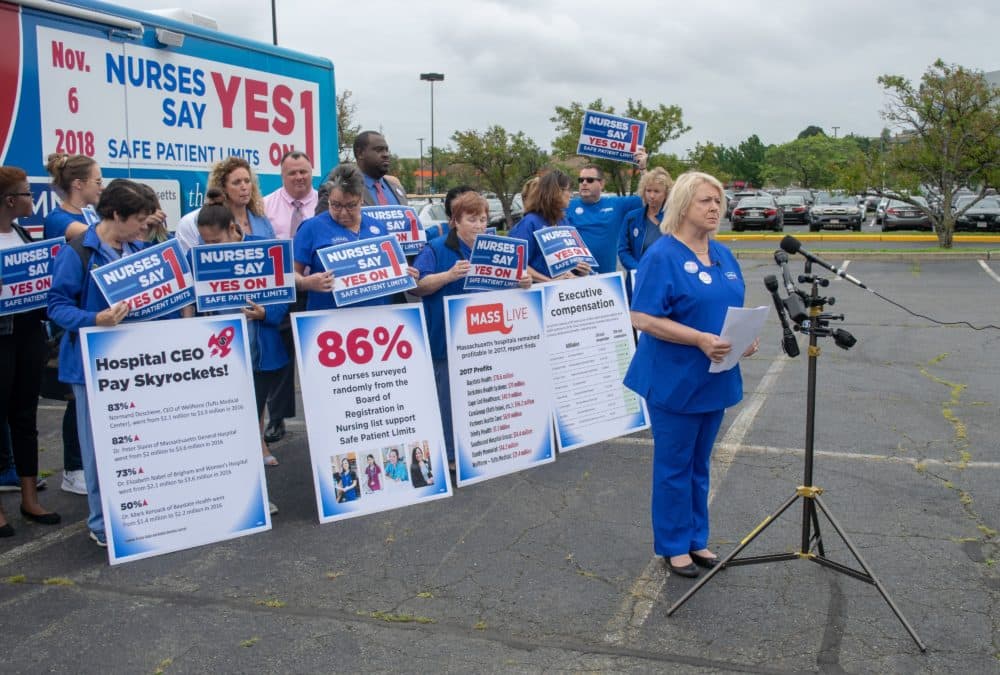Advertisement
Backers Of Nurse Staffing Proposal Object To Agency's Study

A report from an independent state agency on the potential costs of a November ballot question on nurse staffing levels is generating controversy before its findings are even made public.
The Massachusetts Health Policy Commission is scheduled to release its analysis Wednesday, but supporters of Question 1 are suggesting it's highly unusual for any state agency to weigh in on a proposed law before voters, let alone the agency that would be responsible for developing regulations and overseeing implementation of the law if it is approved.
The ballot initiative proposes mandated nurse-to-patient ratios in all of the state's hospitals and in other health care facilities. The ratios would vary based on levels of care required in various hospital settings.
For example, no more than three patients could be assigned to a single nurse in step-down/intermediate care units. The ratios would be lower for emergency room, intensive care or operating room patients, and higher for patients whose medical conditions are more stable.
"The mandating of nurse-to-patient staffing ratios in Massachusetts could have a significant impact on health care costs, quality and access in the state," said Stuart Altman, the commission's chairman, in announcing plans to release the cost analysis.
Established by the Legislature in 2012, the agency is charged with monitoring trends in health care costs toward a goal of providing quality care at more affordable prices. The commission is perhaps best known for establishing an annual "benchmark" for growth in health care spending and determining whether those goals are met.
The analysis of Question 1 is therefore consistent with the agency's "role as an independent watchdog of health care costs, quality and access in state," Altman said, adding that the findings would factor into the commission's discussion later next month of overall health care trends in Massachusetts.
The Committee to Ensure Safe Patient Care, the lead advocacy group for the ballot question, said the Health Policy Commission had never before "engaged" on a ballot question, nor had it undertaken an analysis of any of the hundreds of health care-related bills that were filed with the Legislature in the past session.
Moreover, the group claims the cost analysis of Question 1 may have been tainted by private meetings that members of the commission held with the Massachusetts Health & Hospital Association, an industry group that opposes the ballot initiative.
"In light of these actions, and without being provided with the information on who, how and what data is being used for this report, we have little faith in any of the findings it will provide," said Julie Pinkham, executive director of the Massachusetts Nurses Association which backs the mandated staffing ratios, in a statement.
The ballot question campaign has filed a public records request seeking any public records on who authorized the cost analysis and when, and the extent of any data that might have been shared with the hospital group.
The dispute comes as recent polling suggests Massachusetts voters are sharply divided over the question, which has already prompted heavy spending by both sides, according to the state Office of Campaign and Political Finance.
The Coalition to Protect Patient Safety, a group formed to oppose Question 1, says the proposed mandated staffing ratios would create an overly rigid and unworkable system within hospitals, ultimately adding to costs and compromising patient care.
Both sides have aired TV ads featuring nurses speaking for, and against, the proposal.